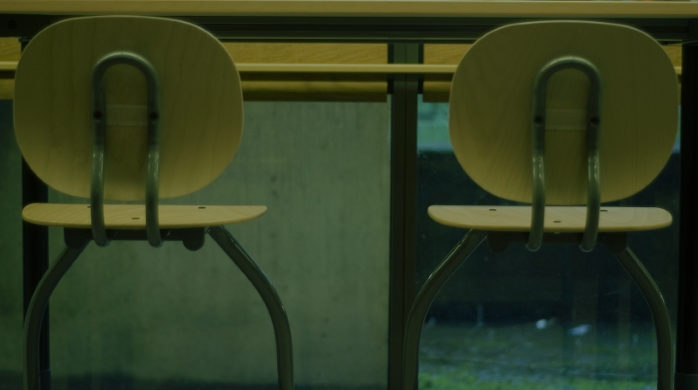Faculty & Staff
Academic & Classroom Scheduling
Academic Scheduling provides support to academic departments in the development of the schedule of classes and assignment of classroom space.
Classroom Scheduling Protocols
Classroom facilities are primarily for use by students, faculty and staff for activities and programs that are directly related to the basic educational functions of teaching, research, and preparation of scholarly material. Every effort is made to ensure that classrooms are assigned fairly, used appropriately, and accommodate the University's academic and instructional needs. Classroom Scheduling Protocols are designed to ensure that quarterly course offerings are scheduled in a manner that permits access to available offerings by the greatest number of students and that allows the best match between the specific instructional needs of the faculty and courses being offered and the existing facilities.
Scheduling Request Forms
Request the use of a general classroom for an academic class, such as an additional meeting time, an alternate (or secondary) exam room, a break out room, review sessions, class presentations, or faculty search presentations.
| Classroom Reservation Request Form |
Request the use of a general classroom for an academic class, such as an additional meeting time, an alternate (or secondary) exam room, a break out room, review session, class presentation or faculty search presentation. |
|---|---|
| Large Classroom Request Form |
For courses with a projected enrollment greater than 70 or with projected enrollment greater than 70 requiring IP video/teleconferencing. |
| Combined Examination Request Form |
Used by academic departments who wish to combine examination times for duplicate sections of the same course. |
| Course Maintenance Request Form |
Used by faculty and staff to schedule, change the time of or cancel a course. |
Scheduling Production Calendars
The Class Schedule Production Schedule provides production deadlines for the Class Schedule, including data entry, training for new staff, course changes and more.
Banner & DuckWeb
Banner is a system used by the University of Oregon to record, classify, and retrieve student and course data. DuckWeb is the University of Oregon's online information system for students, and all faculty are granted access to the DuckWeb Faculty Menu, where they can enter or update grades, create Course Web Links and more.
Banner Access and Training
Banner training sessions provide an overview of the Student Records Privacy Policy and an introduction to the basic Student Banner query screens and how to navigate them. Space is limited, so it is necessary to register for the course if you wish to attend.
Banner Data Entry Instructions
Data entry in the Banner system is conducted using SSASECT. See: Banner Data Entry Instructions.
DuckWeb Faculty Menu Access
DuckWeb is the University of Oregon's online information system for both students and faculty. While all faculty have access to the Faculty Menu, access to some menu items is granted based on certain conditions.
Faculty who are instructors of record will automatically have access to three menu items: View Class List, View Teaching Schedule, and Grade Rosters. Faculty involved with a learning community (FIG, TRIG, or Pathway) will also have a fourth menu item, View Fig/Pathway Schedule. The Student Advising and Departmental Class Lists menu items are available upon request.
Entering and Changing Grades
The Grade Roster is where faculty enter grades for each student and submit final grade rosters to the Registrar. Grades can also be uploaded from a spreadsheet or a Canvas Gradebook.
Course & Degree Information
BA Language Satisfying Courses
List of courses that satisfy the Second Language requirement for the Bachelor of Arts degree.
Course Attribute Codes
Course attributes are used by departments to code courses for degree audit purposes. Attribute codes are entered directly into Banner during the scheduling data entry period in order to signify that a course meets an upper division requirement, an emphasis area, or any other major/minor requirement that is coded in the Degree Audit system. Departments can also use course attributes with other departments.
Course Evaluations
Course Evaluations allow students to confidentially rate their UO learning experience, and provide data and feedback that benefits everyone at the UO. Course evaluation data helps faculty to improve courses and teaching methods, and to determine whether course content is meeting the needs of their students. Department chairs review course evaluation data to assess their faculty and the value of courses offered in their department. University committees include course evaluation data as part of faculty reviews, to determine promotion and tenure. Students can choose courses based on the course evaluation ratings available to them.
Degree Guide
The Degree Guide assists faculty advisors and students with viewing progress toward current declared majors using up-to-date University Catalog requirements.
Degrees, Majors, Minors and Certificates
In addition to completing an academic major, students who plan to receive a bachelor's degree from the University of Oregon may also complete additional majors, minors, or both. Students may also pursue options within majors or minors, which are additional ways of focusing academic interests.
Advisors may submit individual major, minor, or concentration changes online: Degree/Major/Minor Change Request Form.
Full list of degrees, majors, pre-majors, minors, concentrations, certificates, and specializations
Global Education Oregon Course Equivalencies (Study Abroad)
Global Education Oregon (previously known as Study Abroad) offers study abroad programs on five continents for undergraduate students from schools throughout the U.S. GEO Course Equivalencies helps students and advisors determine how courses from GEO will apply toward UO requirements.
Area Satisfying & Cultural Literacy Courses
Area-Satisfying and Cultural Literacy courses count toward partial fulfillment of bachelor's degree requirements under the following groups and categories:
| Area-Satisfying | Cultural Literacy |
|---|---|
| Arts & Letters (A&L) Social Science (SSC) Science (SC) |
Global Perspectives (GP) US: Difference, Inequality, Agency (US) |
Subject Codes
List of subject codes that appear in University of Oregon catalogs, class schedules, student schedules, degree audits, transfer evaluation reports, and transcripts. Courses, which are generally arranged in alphabetical order by department, are identified by a three- or four-letter subject code and a three-digit number.
Course & Degree Information
Other Pages Of Interest
Curriculum Reports
An index of Final UO Senate Curriculum Reports (1998-2016) and Oregon Association of Collegiate Registrar and Admissions Officials (OrACRAO) Template Reports (2006-2016).
Electronic Mailing Lists (Listservs)
The Office of the Registrar offers two electronic mailing Lists (listservs) for faculty, advisers, department heads, and department staff. Sign up for one or both of these using this form.
Privacy Policy
Student records are protected by the Family Educational Rights and Privacy Act (FERPA), which governs the maintenance and release of information from those records.
Integrated Data & Reporting
The UO Integrated Data & Reporting tool provides a means to compose reports based on production data. Available information may also include analytic data that is not available directly through the production system. Access to protected student data is limited to UO faculty or staff who can demonstrate that their role requires use of information from the data categories requested.
Technolutions CRM (Slate)
Request any changes to access in slate using the crm access form.
Other Pages Of Interest

